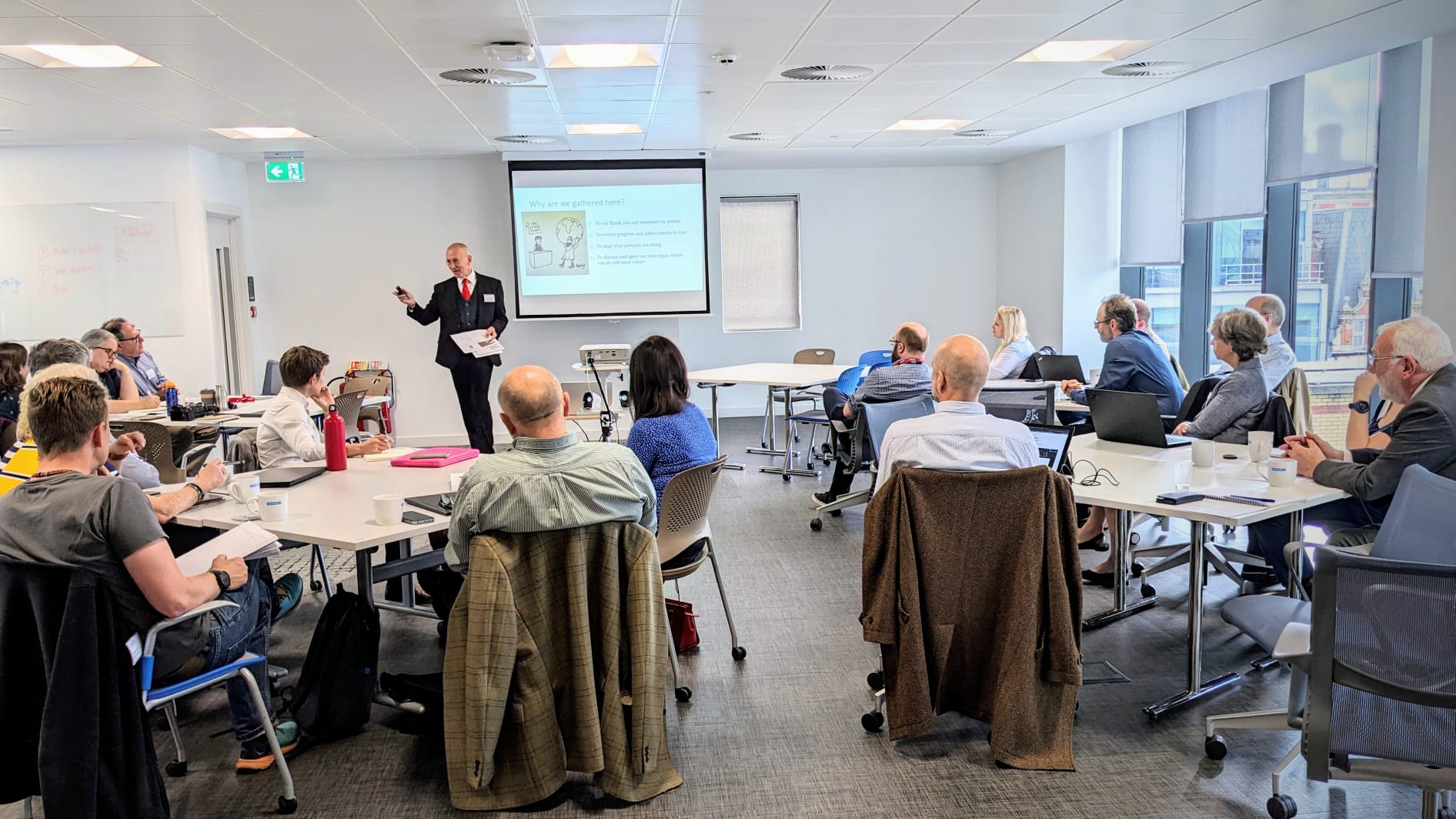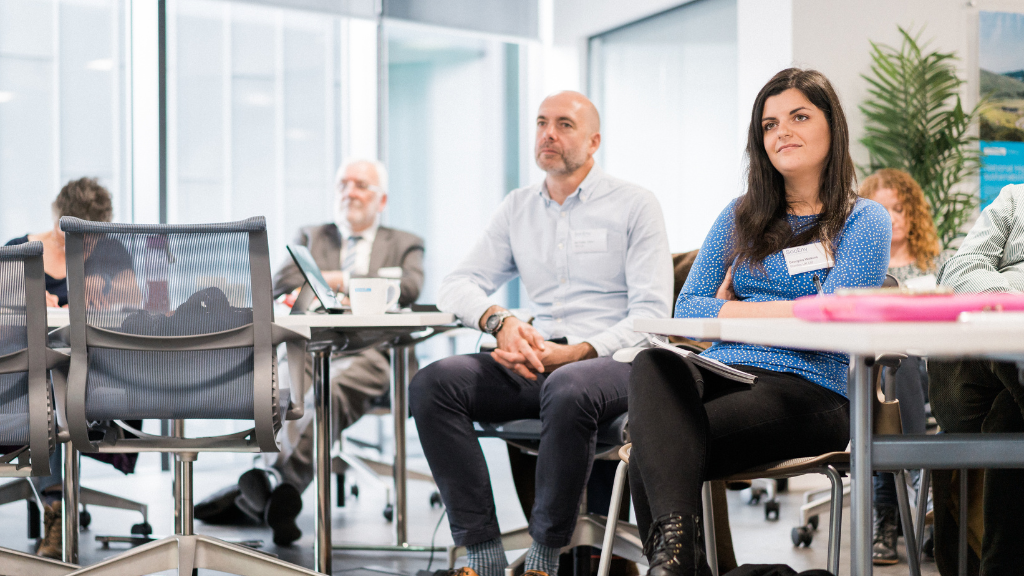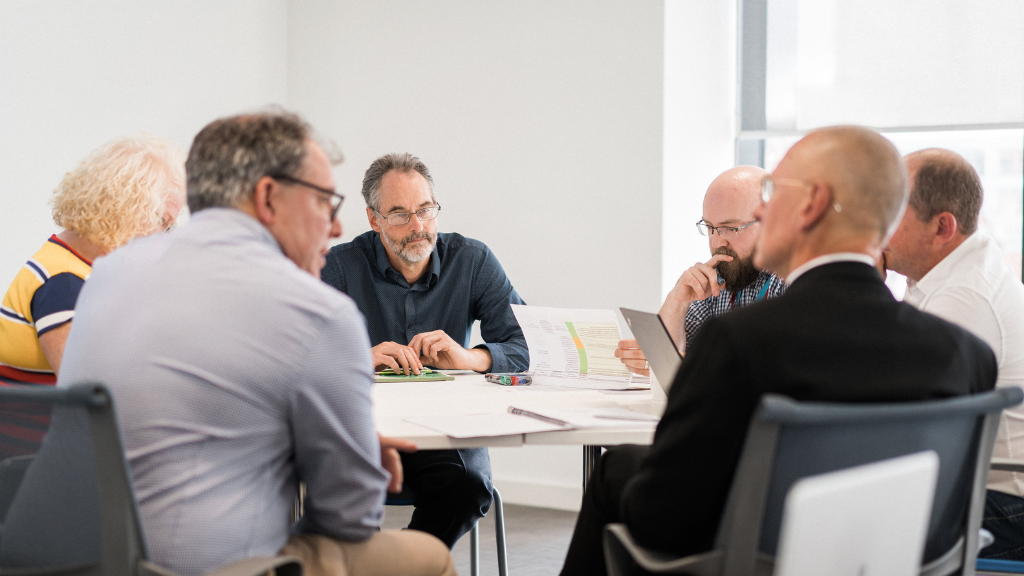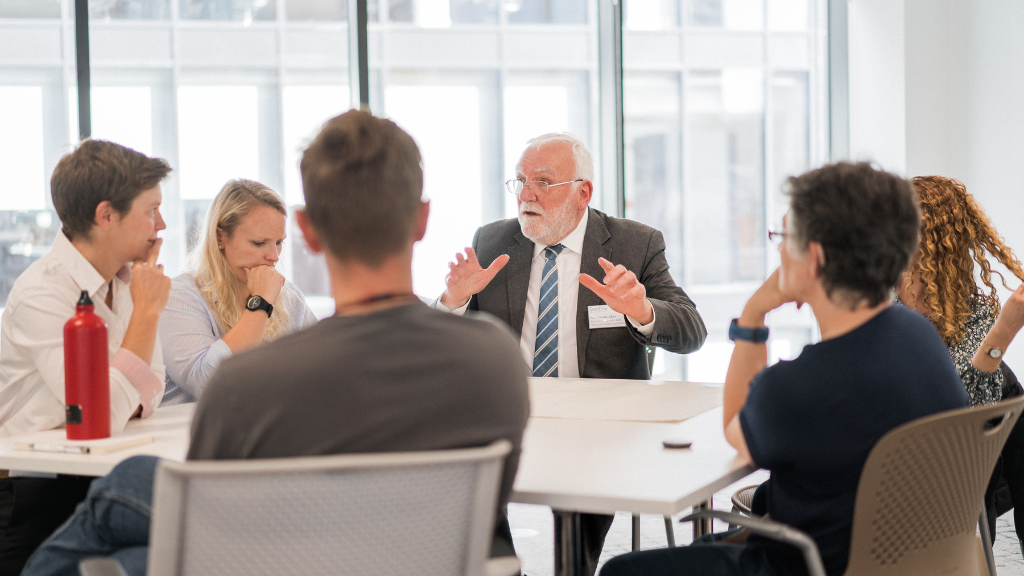
On the 3rd October we were delighted to hold the first in-person meeting of the Soils and Stones Project since pre-COVID times. The meeting, which took place in central Birmingham, provided an opportunity for project volunteers to reconnect in-person. It also allowed us to recap our progress, and map what partners are doing, with the view to identifying the areas where the project can add most value and should focus on going forward. A huge thank you to all involved, including our host, Ramboll, and catering provided by CL:AIRE (Leading Sustainable Land Reuse).
You can find out more about what was discussed and outcomes below.
Credit to Phil Underwood (SocEnv) for the photos used in this news article.
Recap
Background to the project
We opened the agenda with a recap on the project and what we have achieved so far. Since 2019, the SocEnv Soils and Stones project has brought together experts from across a diverse range of sectors. These include: regulation, water, construction, land development, resource management, forestry, engineering, and agricultural/land management.
Key aims
The project has three key aims, bringing Chartered Environmentalists (and those pursuing the registration) together to lead the way and deliver change, through:
- Sharing good practice on soils use/re-use.
- Advocating for policies which recognise the value of these hugely valuable resources.
- Making connections and finding solutions via collaboration.
Outcomes to date
The project’s first key outcome was our Soils and Stones report (2021) which has been hugely well-received by decision-makers including DEFRA. One example illustrating the success of our report: our invitation by the Environment, Food and Rural Affairs Committee to give evidence to the Soil Health Inquiry on 7th March 2023.
Further output has included “The Ten Principles of Good Soils and Stones Management” – providing an overarching Soils and Stones framework as recommended in our report. The Ten Principles provide a clear, straightforward guide of how to protect, use and re-use these vital resources – a framework against which existing legislation and regulation can be reviewed and improved. We have also got our message across via articles in leading journals (see examples here and here) and presentations at key events.

Good practice shared
The meeting included presentations from:
- Dr Emma Wilcox CEnv, Chief Executive, SocEnv
- Martin Ballard CEnv CMgr FIEMA, SocEnv Soils & Stones lead/ Group Head of Environment (Wates) and Rob Earl CEnv FIWater, retired environmental governance and risk specialist
- Graham Winter MCIWM, Senior Advisor (Waste Strategy & Circular Economy), Environment & Business, Environment Agency and Jonathan Atkinson CEnv, Technical Director, CL:AIRE
- Ellen Fay, Founder & Executive Director, Sustainable Soils Alliance
- Nick Wood, Jackson Remediation
- Dr Jane Rickson CEnv, HonFIAgrE, FHEA, Professor of Soil Erosion and Conservation, Cranfield University
- Rebecca Hearn, MidLE: Midlands Land Events and Diane Robson CEnv, East Land Quality Forum.

Outcomes
We are keen for the SocEnv Soils and Stones project to forge connections across sectors and organisations, recognising the work that all stakeholders are progressing in relation to the SocEnv report. The project also recognises that soil health has no boundaries, necessitating robust collaboration across sectors. We will lead on areas that we feel we can add the most value, while supporting the activity of others to avoid duplicated effort to the same goal.
In the coming months, we will be:
- Bringing key partners together to discuss areas of collaboration in detail. For example, we’ve identified soil monitoring as a key area, making links between regional land events and their key activities (#SILOtoSOIL). We’re also working on a communication strategy: getting a clear message across, especially to policymakers.
- Forming an action plan for 2024 in time for World Soil Day (5 December) and encourage more people to get involved in the project for 2024.

Interested in getting involved?
Would you like to contribute to our project and collaborate with other experts?
Please note: the project is open to those with membership of an environmental related professional body (one of our Licensed Members, or Institutions with a closely tied remit such as the British Society of Soil Science). Ideally volunteers should also hold Chartered Environmentalist (CEnv) registration, though this isn’t essential. Indeed, involvement could support progression to CEnv registration through one’s respective professional body.
If you would like to express interest in getting involved, please get in touch with Sarah via the link below.
More on soils career progression
The new UK Soil Science Apprenticeship is launching in 2024, following the work of a trailblazer group involving SocEnv. Find out more via the link below.
 SocEnv | Ten Principles of Good Soils and Stones Management
SocEnv | Ten Principles of Good Soils and Stones Management
 CEnv Blog | World Soils Day - Protecting our Soils
CEnv Blog | World Soils Day - Protecting our Soils
 SocEnv Response to MP inquiry into soil health
SocEnv Response to MP inquiry into soil health
